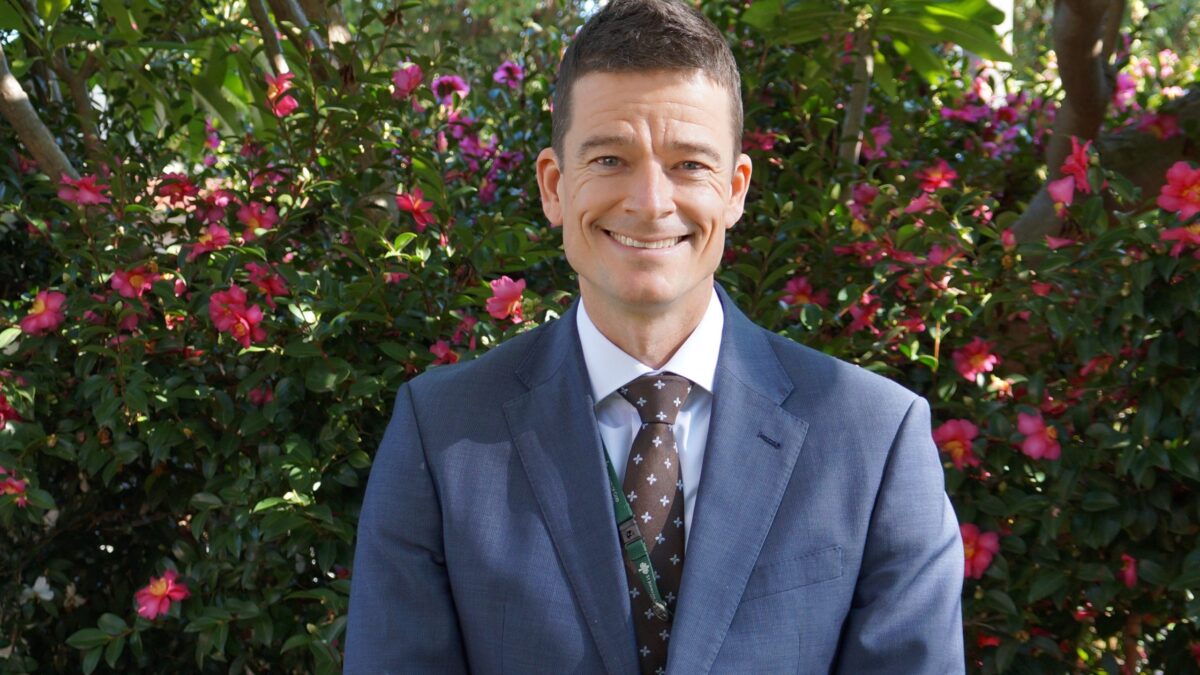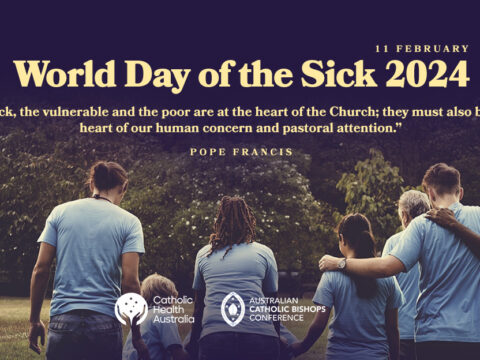
AUSTRALIAN CATHOLICS SHOULD TAKE HEED OF POPE FRANCIS MESSAGE ON HEALTHCARE
April 7, 2022
CHA LENDS A HAND TO FLOOD-STRICKEN ST VINCENT’S LISMORE
April 14, 2022St John of God Health Care has appointed Paul Dyer as CEO at St John of God Midland Public and Private Hospitals in Perth. Paul tells us a little about his journey and his vision.
Tell us about your background
I was born in Bendigo and did my nursing degree there. I had no idea what I wanted to do when I left school but my mum was a midwife, so I thought I would give it a go, and from the first day I just loved it.
I graduated in 1990, completed my graduate year at Bendigo Hospital, then went to Melbourne to work for six years, primarily as an orthopaedic nurse.
I got the opportunity to take on a leadership role at Epworth Hospital, then in 1996 I married my wife, Wanice, and we moved back to Bendigo, where I became an Associate Nurse Manager at Bendigo Hospital.
I have since worked in a series of roles including at Mt Alvernia Mercy Hospital (which later became St John of God Bendigo Hospital), St John of God Burwood Hospital in Sydney, and our Geraldton Hospital, where I was CEO and then CEO/Director of Nursing for five years.
We then moved to Perth where I became CEO of St John of God Midland Private Hospital for two years, then St John of God Mt Lawley Hospital, where I have been CEO for the past three years.
Is having a background as a clinician an advantage when it comes to managing a major health organisation?
A nursing background gives you a degree of credibility, I think. I can go into a patient’s room and build a rapport straight away because I spent so much time at the bedside. It also gives you credibility when you can sit and talk with doctors and understand the clinical discussion.
There’s also the understanding about staffing, shift work and rosters because I have lived and worked it. I’ve done all the management roles in nursing so have a really good knowledge of how a hospital actually operates.
What is it about the St John of God Health Care culture that has made you stay?
I have always felt very supported within St John of God Health Care and I have had a lot of leadership development made available to me.
I have been officially and unofficially mentored by many great leaders with St John of God Health Care over the years.
There is no doubt that the opportunities I had to build face-to-face connections with other leaders in this organisation made a significant difference to my career. I now also can call many of those mentors and leaders my peers, which is amazing.
I think the organisation’s always been led very well by respected health care leaders who are mission focused, and that is important to me.
One of the great things about being a CEO in a faith-based organisation is that you are given scope to do the right thing, sometimes even if it means less bottom line for the hospital, which sits well with me.
What has changed in the two decades since you have been at St John of God Health Care?
Delivering care at the bedside has become more challenging in the past decade. Our services are highly regulated and sometimes we have let paperwork and bureaucracy get in the way of delivering great care. There’s a balance to be achieved there that we haven’t always got right I think.
Health care, like many industries, is becoming more and more challenging, with immense pressure from funders, regulators, increasing community and patient expectations, and workforce shortages just to name a few.
But it’s a dynamic field to work in and I wouldn’t do anything else for quids.
You have most recently been at St John of God Mt Lawley Hospital. What can you tell us about that?
We’ve made a lot of progress at St John of God Mt Lawley Hospital over the past three years in all the important metrics and in developing a healthy culture. I think the biggest thing I have been able to bring is a sense of optimism around the hospital, bringing an energy and a mindset around growth and improvement.
One of the most meaningful things I have done here is to get people to believe in this hospital again. While not as big as some of our other hospitals, the services it delivers, particularly in rehabilitation and mental health, are just as important. That’s made a big difference in the way our workplace feels and looks.
What challenges are unique to St John of God Midland Public and Private Hospitals?
Managing a public/private partnership definitely presents unique managerial and leadership challenges. However, it’s demand management that always provides the largest challenge within publicly funded health care. So supporting caregivers, managing demand, continuing to service the community and growing the private activity will be my core focus areas.
I think that collaborating with the State and Federal Government around funding expansion of public while also allowing expansion of private is also going to be a priority, as will building on the already amazing culture at the hospital.
How do you see St John of God Health Care in relation to the private health system? How important is it that it is faith-based?
As a Catholic health care provider, we fundamentally believe that the care we deliver to our patients, the experience they have in our services, and the connection our caregivers make with them is different to what others providers are offering.
Our caregivers reflect our wonderfully diverse community, and come from a wide range of cultural and religious backgrounds, but we are acutely aware of the need to spend time and energy in working with them to explore what makes delivering care in a faith-based hospital different.
We also invest heavily in forming leaders at all levels of the organisation to ensure our services are led in line with our Mission, Vision and Values.
I do think that we try as an organisation to really value our staff and to support and develop them, and to work with staff to build health care services, systems and processes that really put patients at the centre of everything we do.
Do you have any interests outside of the specific job?
I took up running in the early 2000’s and I’ve run about 20 marathons. Any spare time I have is spent with my family and relaxing here in Perth and around WA.
CEO roles can be fairly all-consuming and, since moving to Perth, I have reduced my involvement in other organisations, but when the time is right I would be keen to get back into volunteering for community organisations.
What makes a good leader?
Ultimately, being a good leader in health care is all about being authentic, available and kind. People mistake being kind with being soft and with not making the tough decisions, but caring about people often means telling them the truth, irrespective of how hard it is for them to hear.
It’s only by genuinely, honestly and openly engaging with people that you are able to successfully bring them along the journey we all need to take. I try to inspire people with my energy, enthusiasm and by my belief in them, I think that’s what makes the difference.





